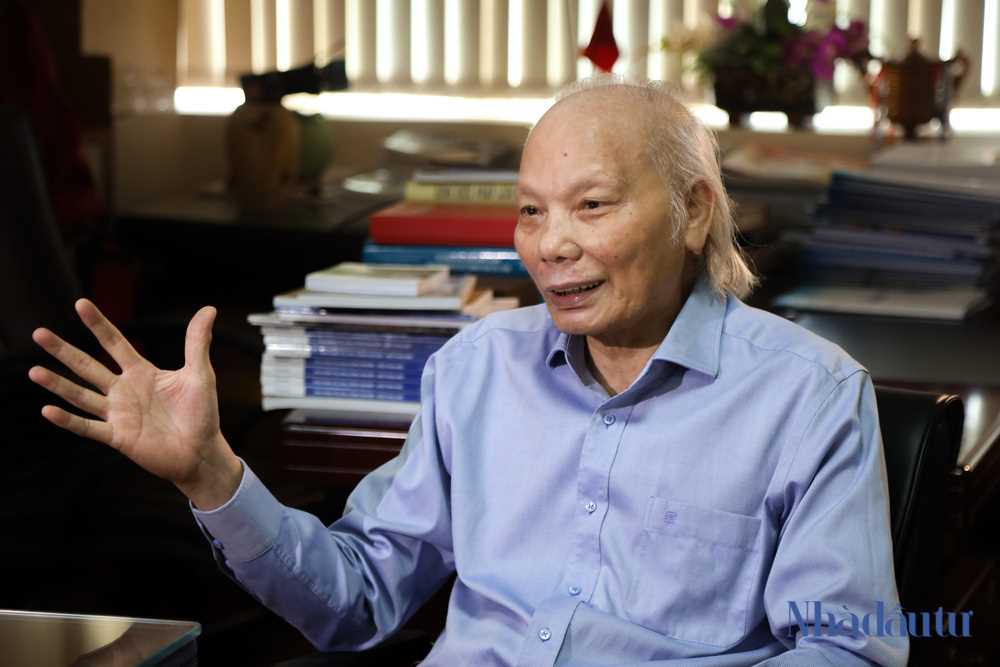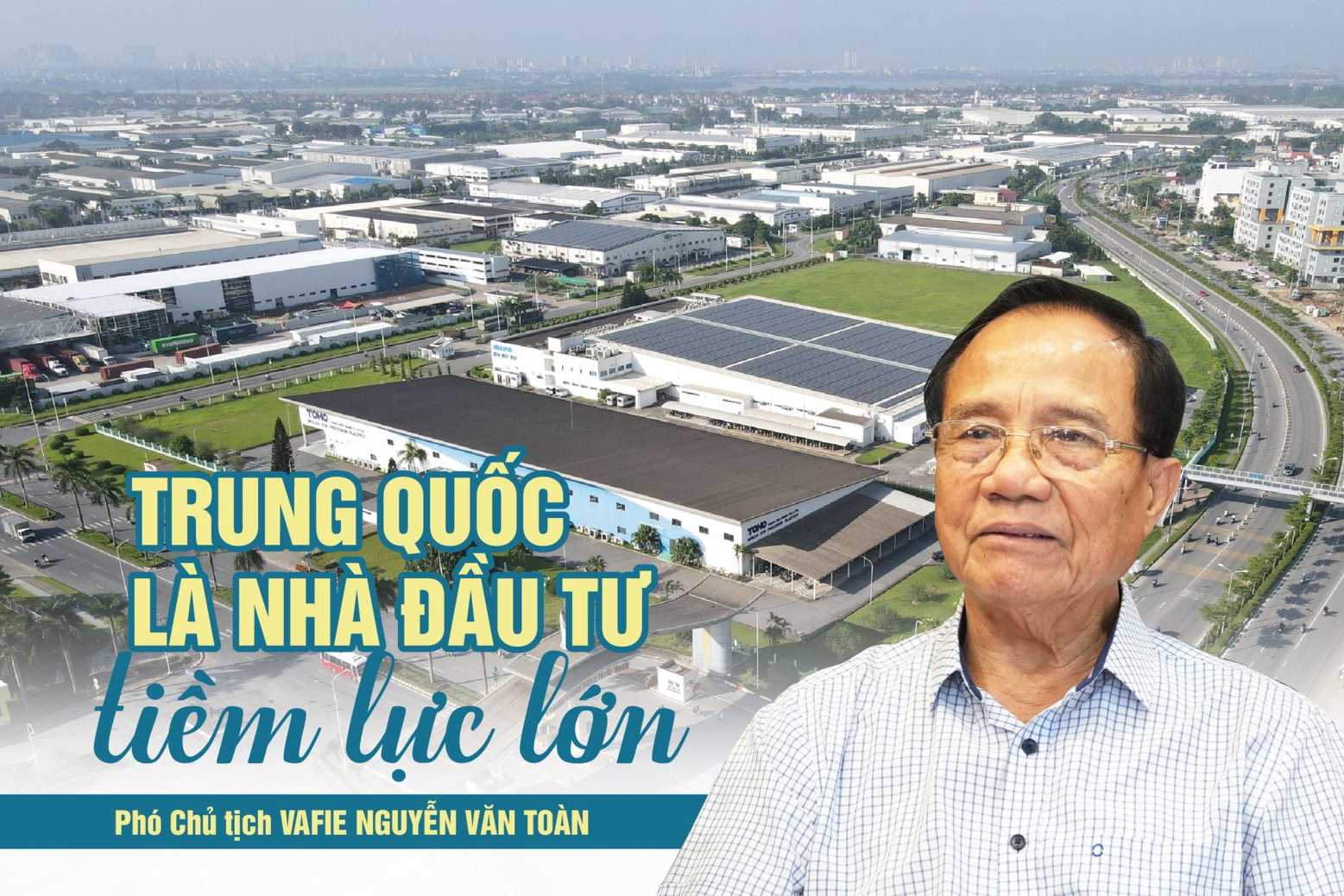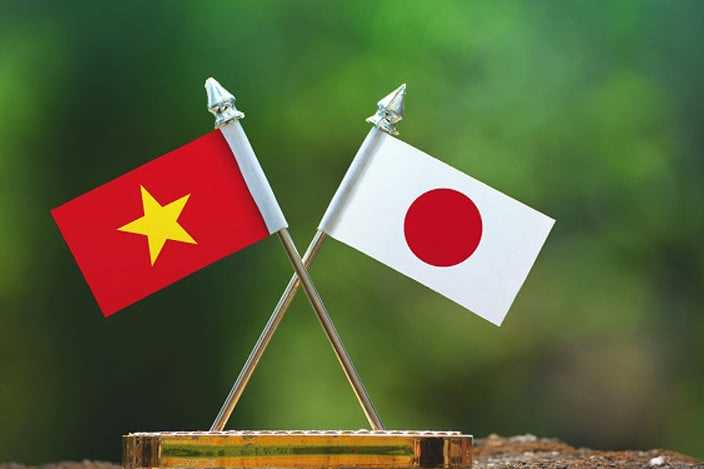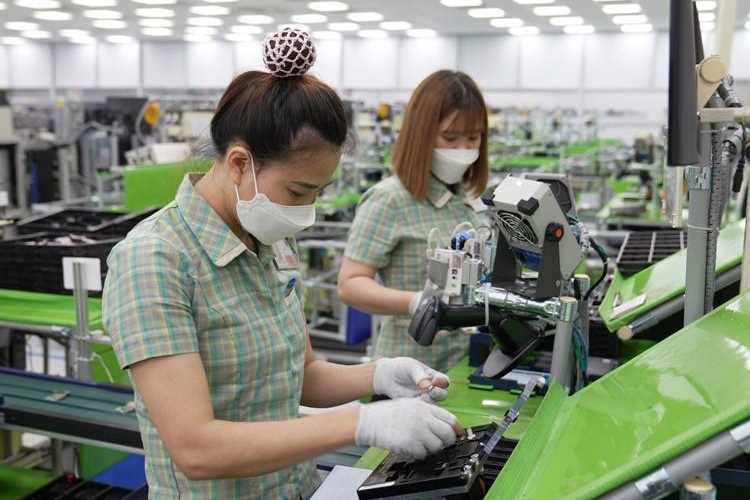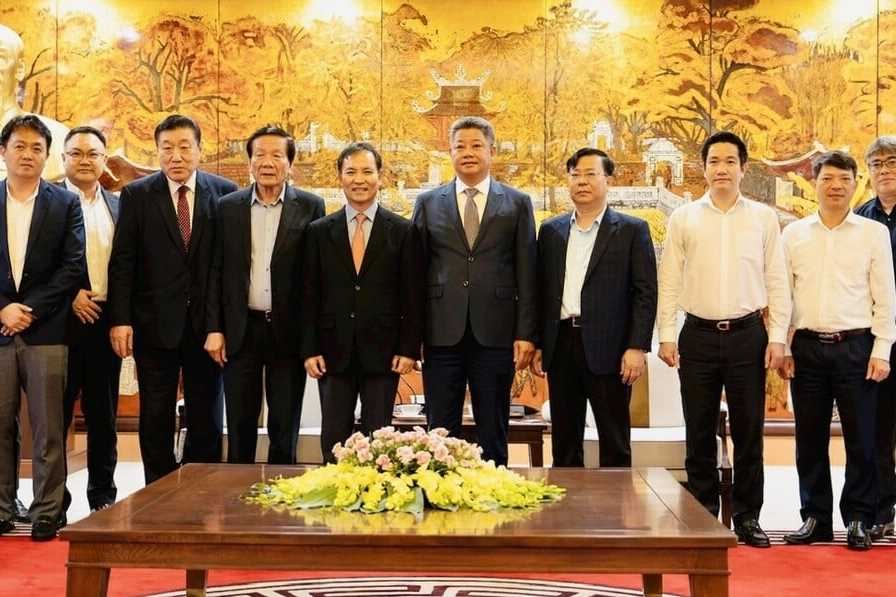VAFIE - Bản tin cập nhật thuế tháng 6/2024
Những điểm chính cần lưu ý:
- Nghị định mới ban hành
- Giảm thuế GTGT trong 6 tháng cuối năm 2014
Nhằm tiếp sức giúp các doanh nghiệp phục hồi sản xuất kinh doanh, thúc đẩy tiêu dùng xã hội, Quốc hội đã thông qua Nghị quyết 142/2024/QH15 (Nghị quyết 142/2024/NQ15) ngày 29 tháng 6 năm 2024 về Kỳ họp thứ 7, Quốc hội XV, trong đó bao gồm việc tiếp tục giảm thuế Giá trị Gia tăng (GTGT) trong sáu tháng cuối năm 2024.
Tiếp theo Nghị quyết số 142/2024/QH15, ngày 30 tháng 6 năm 2024, Chính phủ đã ban hành Nghị định số 72/2024/NĐ-CP (Nghị định 72) về chính sách giảm thuế GTGT này. Nghị định 72 bám sát nội dung của các Nghị định về chính sách giảm thuế GTGT áp dụng trong năm 2022, 2023 và 6 tháng đầu năm 2024 (Nghị định số 15/2022/NĐ-CP ngày 28 tháng 1 năm 2022, Nghị định số 44/2023/NĐ-CP ngày 30 tháng 6 năm 2023 và Nghị định số 94/2023/NĐ-CP ngày 28 tháng 12 năm 2023).
Nghị định 72 quy định việc giảm 2% thuế suất thuế GTGT áp dụng đối với các nhóm hàng hóa, dịch vụ đang áp dụng mức thuế suất 10% (còn 8%) từ ngày 1 tháng 7 năm 2024 đến hết ngày 31 tháng 12 năm 2024.
Các trường hợp loại trừ gồm các nhóm hàng hóa, dịch vụ thuộc nhóm ngành viễn thông, công nghệ thông tin, hoạt động tài chính, ngân hàng, chứng khoán, bảo hiểm, kinh doanh bất động sản, sản xuất kim loại và sản xuất sản phẩm từ kim loại đúc sẵn, ngành khai khoáng (không bao gồm ngành khai thác than), sản xuất than cốc, dầu mỏ tinh chế, sản xuất hóa chất và sản phẩm hóa chất, các sản phẩm hàng hóa và dịch vụ chịu thuế tiêu thụ đặc biệt.
Tham khảo nội dung tại Nghị định số 72/2024/NĐ-CP ngày 30/6/2024 của Chính Phủ.
- Quy định mới về mức lương mức lương cơ sở và mức lương tối thiểu vùng
Nghị định số 73/2024/NĐ-CP (“NĐ 73”) quy định mức lương cơ sở và Nghị định 74/2024/NĐ-CP (“NĐ 74”) quy định mức lương tối thiểu vùng của Chính phủ ban hành ngày 30/6/2024. Các nghị định này sẽ có hiệu lực thi hành từ ngày 1/7/2024.
Theo đó, mức lương cơ sở và mức lương tối thiểu vùng sẽ thay đổi như sau:
- Mức lương cơ sở sẽ được tăng 30% từ 1.800.000 đồng lên 2.340.000 đồng. Do đó, mức lương tối đa để làm căn cứ tính đóng Bảo hiểm xã hội (“BHXH”), Bảo hiểm y tế (“BHYT”), Bảo hiểm tai nạn lao động – bệnh nghề nghiệp (“BHTNLĐ-BNN”) và Kinh phí công đoàn (“KPCĐ”) (tức là 20 lần mức lương cơ sở) sẽ tăng từ 36.000.000 đồng/tháng lên 46.800.000 đồng/tháng. Như vậy, đối với người lao động có mức lương đóng BHXH, BHYT, BHTNLĐ-BNN cũng như mức lương đóng phí công đoàn hàng tháng lớn hơn 36.000.000 đồng/ tháng; khoản tiền đóng BHXH, BHYT, BHTNLĐ-BNN và phí Công đoàn hàng tháng - cả phần của người lao động và người sử dụng lao động sẽ tăng tương ứng.
- Mức lương tối thiểu vùng tăng thêm 6% cho các vùng:
Đơn vị: đồng/tháng
|
Vùng |
Mức lương tối thiểu vùng theo Nghị định 38/2022/NĐ-CP
|
Mức lương tối thiểu vùng theo Nghị định 74/2024/ND-CP
|
Mức lương tối đa tính đóng Bảo hiểm thất nghiệp |
|
Vùng I |
4.680.000 |
4.960.000 |
99.200.000 |
|
Vùng II |
4.160.000 |
4.410.000 |
88.200.000 |
|
Vùng III |
3.640.000 |
3.860.000 |
77.200.000 |
|
Vùng IV |
3.250.000 |
3.450.000 |
69.000.000 |
Theo đó, mức lương tối thiểu vùng thay đổi sẽ ảnh hưởng tới mức lương tối thiểu người lao động nhận được, tăng mức lương tối đa tính đóng bảo hiểm thất nghiệp đồng thời tăng mức hưởng trợ cấp thất nghiệp tối đa.
Tham khảo nội dung Nghị định số 73/2024/NĐ-CP và 74/2024/NĐ-CP ngày 30/6/2024 của Chính Phủ.
- Thuế Thu nhập doanh nghiệp
- Ưu đãi thuế TNDN đối với doanh nghiệp được hưởng nhiều mức ưu đãi khác nhau
Tình huống: Trường hợp công ty đủ điều kiện được hưởng nhiều mức ưu đãi thuế TNDN khác nhau trong đó có mức ưu đãi cao nhất về sản xuất sản phẩm công nghiệp hỗ trợ, thì Công ty sẽ được áp dụng ưu đãi như thế nào?
Hướng dẫn: Căn cứ quy định tại khoản 4, Điều 18, Luật thuế TNDN, doanh nghiệp được lựa chọn áp dụng mức ưu đãi có lợi nhất nếu đáp ứng điều kiện cho nhiều mức ưu đãi khác nhau. Cụ thể, nếu công ty chọn hưởng ưu đãi theo điều kiện ưu đãi có lợi nhất (sản xuất sản phẩm công nghiệp hỗ trợ (“CNHT”)) đối với thu nhập phát sinh từ dự án đầu tư của công ty thì:
- Dự án sản xuất sản phẩm CNHT được hưởng ưu đãi thuế TNDN theo điều kiện CNHT kể từ khi được cấp Giấy xác nhận ưu đãi của Bộ Công Thương.
- Thu nhập phát sinh từ các sản phẩm không phải là sản phẩm CNHT không tiếp tục được hưởng ưu đãi thuế TNDN theo điều kiện dự án đầu tư mới tại khu công nghiệp.
Tham khảo nội dung hướng dẫn theo Công văn số 2326/TCT-CS ngày 3/6/2024 của Tổng Cục Thuế.
- Ưu đãi thuế TNDN đối với phân kỳ đầu tư và ngành nghề, hoạt động bổ sung
Tình huống: Trường hợp Công ty không đáp ứng điều kiện phân kỳ đầu tư, có bổ sung hoạt động động thương mại trong Giấy phép đầu tư nhưng vẫn giữ nguyên vốn và không mở rộng quy mô sản xuất, thì có được áp dụng ưu đãi thuế TNDN hay không?
Hướng dẫn:
- Dự án của công ty không đáp ứng điều kiện về phân kỳ đầu tư thì không được hưởng ưu đãi thuế TNDN theo quy định về phân kỳ đầu tư tại khoản 7, Điều 1, Nghị định số 91/2014/NĐ-CP và khoản 3, Điều 10, Thông tư số 96/2015/TT-BTC.
- Trong quá trình hoạt động, công ty có bổ sung ngành nghề, hoạt động kinh doanh mang tính chất thương mại mà không tăng vốn, không thực hiện hoạt động đầu tư mở rộng để tăng tài sản thì phần thu nhập từ ngành nghề, hoạt động bổ sung không được hưởng ưu đãi thuế TNDN.
Tham khảo nội dung hướng dẫn theo Công văn số 2133/TCT-CS ngày 20/5/2024 của Tổng cục Thuế.
- Chi phí được trừ đối với khoản bồi thường cho người bị tai nạn lao động
Tình huống: Công ty có chi trả khoản bồi thường cho người bị tai nạn lao động, thì khoản chi phí này có được trừ cho mục đích tính thuế TNDN không?
Hướng dẫn: Khoản tiền chi bồi thường cho người bị tai nạn lao động của đơn vị được xác định là chi phí được trừ nếu đáp ứng các điều kiện quy định tại Điều 38 và Điều 45 Luật An toàn, vệ sinh lao động số 84/2015/QH13 ngày 25/6/2015 và Điều 4 Thông tư số 96/2015/TT-BTC ngày 22/6/2015 của Bộ Tài Chính.
Tham khảo nội dung hướng dẫn theo Công văn số 28811/CTHN-TTHT ngày 17/5/2024 của Cục Thuế TP. Hà Nội.
- Thuế Giá trị gia tăng
- Hướng dẫn khấu trừ thuế GTGT đối với xuất nhập tại chỗ
Tình huống: Trường hợp trong năm 2023, công ty có thực hiện giao dịch xuất khẩu tại chỗ và xuất hóa đơn GTGT với thuế suất 0%. Sau đó, Cơ quan Hải quan xác định giao dịch này không đáp ứng điều kiện xuất khẩu tại chỗ do người mua nước ngoài có cơ sở thường trú hiện diện tại Việt Nam. Vậy, Công ty phải xử lý tình huống này như thế nào?
Hướng dẫn: Trường hợp Công ty đã được cơ quan Hải quan rà soát trong năm 2023 xác định một số tờ khai xuất khẩu bán cho thương nhân nước ngoài có hiện diện tại Việt Nam chỉ định giao hàng tại Việt Nam, không đáp ứng điều kiện tờ khai xuất khẩu tại chỗ, giao dịch mua bán như trên không được coi là giao dịch xuất nhập khẩu thì Công ty phải thực hiện nộp thuế GTGT như hàng hóa tiêu thụ nội địa. Thuế GTGT của các tờ khai này bên nhận hàng tại Việt Nam không được khấu trừ đầu vào do không trực tiếp mua hàng hóa, không trực tiếp thanh toán tiền hàng nên không đáp ứng quy định Điều 15, TT219/2013/TT-BTC.
Tham khảo nội dung hướng dẫn theo Công văn số 15963/CTBDU-TTHT ngày 17/6/2024 của Cục Thuế tỉnh Bình Dương.
- Thuế GTGT đối với phí thuê gia công cho khách hàng nước ngoài
Tình huống: Trường hợp khách hàng tại nước ngoài thuê Công ty thực hiện gia công sản phẩm dây dẫn điện theo đơn hàng xuất khẩu sang nước họ. Vật liệu gia công được khách hàng nước ngoài gửi về cho Công ty để thực hiện gia công. Tuy nhiên, vật liệu gia công có phát sinh lỗi cần phải sàng lọc và sửa chữa, Công ty đã tiến hành lọc và sửa chữa vật tư lỗi để có thể sử dụng vào quá trình gia công; số vật tư sau khi lọc và sửa chữa được đưa vào quá trình gia công và xuất phí gia công cho khách hàng tại nước ngoài thì dịch vụ lọc và sửa chữa vật liệu lỗi này có được áp dụng thuế suất thuế GTGT 0% không?
Hướng dẫn: Dịch vụ lọc và sửa chữa vật liệu lỗi được Công ty thực hiện, cung cấp và tiêu dùng tại Việt Nam không thuộc đối tượng quy định điểm b khoản 1 Điều 9 Thông tư 219/2013/TT-BTC do đó không được áp dụng thuế suất thuế GTGT 0%.
Tham khảo nội dung hướng dẫn theo Công văn số 1295/CTHNA-TTHT ngày 29/5/2024 của Cục Thuế Hà Nam.
- Thuế Thu nhập cá nhân
- Thuế TNCN đối với hoạt động chơi golf
Tình huống: Trường hợp Công ty đóng phí tham gia sự kiện golf này thông thường có hai khoản phí (i) khoản phí đóng cho đơn khị đối tác tổ chức sự kiện mời, khoản phí này không có hóa đơn giá trị gia tăng mà chỉ có phiếu thu hoặc biên nhận không ghi tên cá nhân, và (ii) khoản phí đóng cho sân golf, khoản phí này được xuất hóa đơn giá trị gia tăng ghi tên đơn vị và mã số thuế của đơn vị, không ghi tên cá nhân. Vậy các khoản chi trên có bị tính vào thu nhập chịu thuế TNCN của người tham gia chơi golf hay không?
Hướng dẫn: Trường hợp Công ty có cử một hoặc vài nhân sự tham gia chơi golf để giao lưu hợp tác với khách hàng thì:
- Nếu các chứng từ và hóa đơn chi phí chơi golf đều mang tên Công ty thì khoản chi phí này không phải là thu nhập người lao động nhận được nên không tính vào thu nhập chịu thuế TNCN.
- Nếu thẻ chơi golf ghi đích danh tên người đại diện là nhân sự của Công ty thì chi phí đó tính vào thu nhập chịu thuế để tính thuế TNCN đối với cá nhân tham gia.
Tham khảo nội dung hướng dẫn theo Công văn số 39488/CTHN-TTHT ngày 4/7/2024 của Cục Thuế TP. Hà Nội.
- Trợ cấp cho người lao động nước ngoài qua đời
Tình huống: Trường hợp Công ty chúng tôi có người lao động nước ngoài không may đã qua đời trong quá trình làm việc tại Công ty. Để hộ trợ cho gia đình của nạn nhân, chúng tôi có chi trả khoản hỗ trợ đặc biệt cho người thân của người lao động, thì khoản chi này sẽ được tính thuế như thế nào?
Hướng dẫn:
- Trường hợp người thân của người lao động đã mất nhận khoản hỗ trợ đặc biệt từ Công ty, nếu khoản thu nhập này đáp ứng quy định tại khoản 5 Điều 11 Thông tư 92/2015/TT-BTC và phù hợp với mức xác định thu nhập chịu thuế thu nhập doanh nghiệp theo điểm 2.30 khoản 2 Điều 4 cùa Thông lư só 96/2015/TT-BTC thì không tính vào thu nhập chịu thuế TNCN của người lao động và được tính vào chi phí được trừ khi xác dinh thu nhập chịu thuế TNDN.
- Trường hợp tại thời điểm quyết toán thuế TNCN người lao dộng đã chết và Công ty đã cấp chứng từ khấu trừ TNCN thì người thừa kế hợp pháp của người lao động đã chết nộp hồ sơ khai quyết toán thuế TNCN về cơ quan thuế nơi cá nhân cư trú theo quy định tại tiết b.2 điểm b khoản 8 Điều 11 Nghị định 126/2020/NĐ-CP.
Tham khảo nội dung hướng dẫn theo Công văn số 15464/CTBDU-TTHT ngày 11/6/2024 của Cục Thuế Bình Dương.
- Thuế Nhà thầu nước ngoài
- Thuế NTNN đối với hoạt động gia công tại nước ngoài
Tình huống: Trường hợp Công ty xuất khẩu hàng hóa giao cho khách hàng ờ nước ngoài, do hàng hóa không đạt yêu cầu chất lượng theo hợp đồng mua bán đã ký kết nên Công ty phải thuê tổ chức khác gia công chế biến lại, thì chi phí này có chịu thuế nhà thầu không?
Hướng dẫn: Trong trường hợp nêu trên, do hoạt động gia công này được cung cấp và tiêu dùng ngoài Việt Nam nên thu nhập mà tổ chức nước ngoài nhận được không thuộc đối tượng chịu thuế nhà thầu.
Tham khảo nội dung hướng dẫn theo Công văn số 12264/CTBDU-TTHT ngày 9/5/2024 của Cục Thuế Bình Dương.
*****
VAFIE - Tax newsletter June 2024
Notable key points:
- Newly issued regulations
- Reduction of Value Added Tax (VAT) rate in the last six months of 2024
To help businesses restore production and business, promote social consumption, the National Assembly passed Resolution 142/2024/QH15 dated 29 June 2024 on the 7th Session of the XV National Assembly, which includes the continued reduction of Value Added Tax (VAT) rate in the last six months of 2024.
Following Resolution No. 142/2024/QH15, the Government on 30 June 2024 issued Decree No. 72/2024/ND-CP on this VAT reduction policy. Decree 72 mirrors the contents of the Decrees on VAT reduction policies applied in 2022, 2023 and the first 6 months of 2024 which are Decree No. 15/2022/ND-CP dated 28 January 2022, Decree No. 44/2023/ND-CP dated 30 June 2023 and Decree No. 94/2023/ND-CP dated 28 December 2023.
Decree 72 provides guidance on the application of the 2% VAT rate cut which applies to groups of goods and services that are subject to 10% with the cover period of 1 July 2024 to 31 December 2024 (inclusive).
Exceptions are noted for goods and services in the groups of telecommunications, information technology, financial activities, banking, securities, insurance, real estate business, metal production and prefabricated metal products, mining industry (excluding coal mining industry), production of coke, refined petroleum, production of chemicals and chemical products, products of goods and services subject to excise tax.
Refer to Decree 72/2024/NĐ-CP dated 30/6/2024 issued by the Goverment.
- New regulations on the general wage and regional minimum wage
Decree No. 73/2024/NĐ-CP (“Decree 73”) on General wage, and Decree No. 74/2024/NĐ-CP (“Decree 74”) on Regional minimum wage dated 30 June 2024. These decrees are set to take effect from 01 July 2024.
Accordingly, the General wage and Regional minimum wage will be as follows:
- The General wage will be increased 30% from VND 1,800,000 to VND 2,340,000. Given that, the capped salary for Social, Health, and Occupational disease & labor accident insurance (“SHI”) as well as Trade Union contribution (i.e. 20 times of minimum base salary) shall increase from VND36,000,000/month to VND46,800,000/month. Therefore, for employees whose monthly salary base for Social, Health, and Occupational disease & labor accident insurance, as well as Trade union contribution is greater than VND36,000,000; the monthly SHI and trade union contributions – both employee and employer’s portion will increase accordingly.
- The Regional minimum salary will be increased of 6% across regions.
Unit: VND/ month
|
Region |
Current regional salary as per Decree 38/2022/ND-CP |
New regional salary as per Decree 74/2024/ND-CP
|
New Unemployment insurance (“UI”) capped salary |
|
I |
4,680,000 |
4,960,000 |
99,200,000 |
|
II |
4,160,000 |
4,410,000 |
88,200,000 |
|
III |
3,640,000 |
3,860,000 |
77,200,000 |
|
IV |
3,250,000 |
3,450,000 |
69,000,000 |
The change in regional minimum salary will lead to the change in minimum salary employees can receive, the increase of maximum salary base for UI contribution and maximum amount of unemployment benefit as well.
Refer to Decree 73/2024/NĐ-CP và 74/2024/NĐ-CP dated 30/6/2024 issued by the Goverment.
- Corporate Income Tax (CIT)
- CIT incentives for enterprises entitled to different incentive schemes
Situation: In case a company is eligible to enjoy many different levels of corporate income tax incentives, including the highest level of incentives for manufacturing supporting industrial products, how will the company receive incentives?
Instruction: Pursuant to the provisions of clause 4, Article 18, Law on CIT, enterprises can choose to apply the most beneficial incentive scheme if qualifying conditions for different incentive scheme. Specifically, if the company chooses to apply incentives under the most beneficial conditions (production of supporting industry (“SI”) products) for income arising from the company's investment project, then:
- The project manufacturing SI products is entitled to SI incentives since being granted a Certificate of Incentives from the Ministry of Industry and Trade.
- Income arising from products other than SI products does not continue to enjoy CIT incentives under the condition of new investment projects in industrial parks.
Refer to Official Letter 2326/TCT-CS dated 3/6/2024 issued by General Department of Taxation.
- CIT incentives for investment phasing and additional business activities
Situation: In case the Company does not meet the investment phasing conditions meanwhile supplements commercial activities in its IRC however still maintains the charter capital and does not expand production scale, can CIT incentives be applied?
Instruction:
- The company's project which does not meet the conditions for investment phasing will not be eligible for CIT incentives according to the regulations on investment phasing in clause 7, Article 1, Decree No. 91/2014/ND-CP and clause 3, Article 10, Circular No. 96/2015/TTBTC.
- During operation, if the company supplements trading business activities without capital increment or expansion investment to increase assets, the income from such additional business activities shall not be eligible for CIT incentives.
Refer to Official Letter 2133/TCT-CS dated 20/5/2024 issued by General Department of Taxation.
- Deductible compensation expense for occupational accident victims
Situation: If the company pays compensation to people who have suffered an accupational accident, can this expense be deducted for corporate income tax purposes?
Instruction: The compensation paid to the employee of the company is determined as a deductible expense if it meets the conditions specified in Articles 38 and 45 of the Law on Occupational Safety and Health No. 84/2015/QH13 dated June 25, 2015 and Article 4 of Circular No. 96/2015/TT-BTC dated June 22, 2015 of the Ministry of Finance.
Refer to Official Letter 28811/CTHN-TTHT dated 17/5/2024 issued by Hanoi Tax Department.
- Value Added Tax (VAT)
- Hướng dẫn khấu trừ thuế GTGT đối với xuất nhập tại chỗ
Situation: In case in 2023, the company will carry out on-site export transactions and issue VAT invoices with a tax rate of 0%. Afterwards, the Customs Authority determined that this transaction did not meet the on-site export conditions because the foreign buyer had a permanent establishment present in Vietnam. So, how should the Company handle for this?
Instruction: In the case that the company has been reviewed by the Customs Authority in 2023 and it is determined that some export declarations sold to foreign traders present in Vietnam, designating delivery in Vietnam, do not meet the conditions for on-the-spot export declarations, the above purchase and sale transactions are not considered import-export transactions, then the company must pay VAT as for domestic consumption goods. The VAT of these declarations is not deductible for the recipient in Vietnam because they do not directly purchase the goods, do not directly pay for the goods, and therefore do not meet the regulations of Article 15 of Circular 219/2013/TT-BTC.
Refer to Official Letter 15963/CTBDU-TTHT dated 17/6/2024 issued by Binh Duong Tax Department.
- VAT on outsourcing fees for foreign customers
Situation: In case the customer in Korea hires the Company to process electrical wire products according to the export order to Korea. The processed materials are sent back to the Company by the Korean Company for processing. However, the processed materials have errors that need to be screened and repaired, the Company has checked and repaired defective materials so that they can be used in the processing process; the number of materials after repairing is included in the processing process and the processing fee is charged to customers in overseasKorea. the screening and repair services of defective materials. Will this faulty material filtering and repair service be subject to the 0% VAT rate?
Instruction: The sortng and repair services of defective materials carried out, supplied and consumed by the Company in Vietnam are not subject to the provisions of Point b, Clause 1, Article 9 of Circular 219/2013/TT-BTC, therefore the tax rate 0% VAT is not applicable
Refer to Official Letter 1295/CTHNA-TTHT dated 29/5/2024 issued by Ha Nam Tax Department.
- Personal Income Tax (PIT)
- PIT for playing golf
Situation: In the case where the company pays fees to participate in this golf event, there are typically two types of fees: (i) the fee paid to the event organizing partner, which does not come with a value-added tax invoice but only a receipt or voucher without an individual's name, and (ii) the fee paid to the golf course, for which a value-added tax invoice is issued in the name of the entity and includes the entity's tax identification number, without an individual's name. So, are these expenses considered taxable personal income for the individuals participating in golf?
Instruction: In the case where the company sends one or several staff members to participate in golf for networking and cooperation with clients:
- If all the documents and invoices for the golf expenses are in the name of the company, then this expense is not considered income received by the employees and therefore is not included in the taxable personal income.
- If the golf pass is specifically named after the individual representing the company, then that expense is considered taxable income for the purpose of calculating personal income tax for the individuals participating
Refer to Official Letter 39488/CTHN-TTHT dated 4/7/2024 issued by Hanoi Tax Department.
- Allowance for foreign workers who have passed away
Situation: In case our Company has a foreign worker who unfortunately passed away while working at the Company. To support the victim's family, we pay special support to the employee's relatives. How will this expense be taxed?
Instruction:
- In the case where the relatives of the deceased worker receive a special support payment from the company, if this income meets the regulations in clause 5 of Article 11 of Circular 92/2015/TT-BTC and is in accordance with the level of taxable income determination for corporate income tax as per point 2.30 of clause 2 of Article 4 of Circular 96/2015/TT-BTC, then it is not included in the taxable personal income of the worker and can be considered a ductible expense when determining taxable corporate income.
- In the event that at the time of personal income tax settlement the worker has passed away and the company has issued a personal income tax deduction document, the legal heir of the deceased worker must submit a personal income tax finalisation settlement declaration to the tax authority where the individual resided, in accordance with the regulations at point b.2 of clause 8 of Article 11 of Decree 126/2020/ND-CP.
Refer to Official Letter 15464/CTBDU-TTHT dated 11/6/2024 issued by Binh Dương Tax Department.
- Foreign Contractor Tax (FCT)
- Overseas processing expense
Situation: In case the Company exports goods to customers abroad, because the goods do not meet the quality requirements according to the signed sales contract, the Company must hire another organization to reprocess them. So, is this expese subject to FCT?
Instruction: In case as mentioned above because this processing activity is provided and consumed outside of Vietnam, the income received by the foreign organization is not subject to FCT.
Refer to Official Letter 12264/CTBDU-TTHT dated 9/5/2024 issued by Binh Dương Tax Department.








